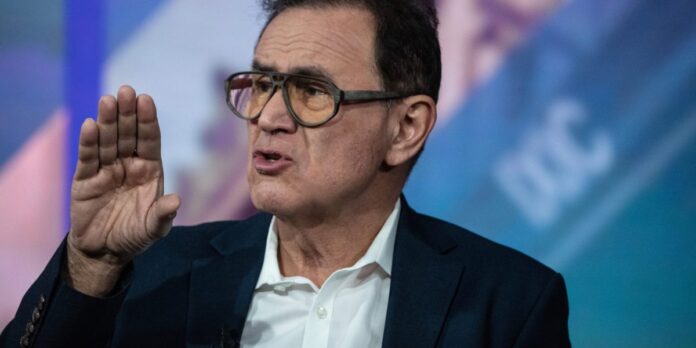After the initial market boost following the confirmation of a second term for Donald Trump, analysts remain skeptical about the long-term economic implications.
Unsurprisingly, the economist known as ‘Dr. Doom’ for his pessimistic forecasts, has a bleak outlook.
Dr. Doom, whose real name is Nouriel Roubini, gained his nickname after predicting a housing market correction and recession in 2006, a forecast that was initially dismissed.
However, his prediction came true with the Global Financial Crisis, establishing his credibility among market participants.
As Trump prepares to return to the Oval Office, Roubini anticipates the economic consequences under the Republican administration to be negative.
“Some of Trump’s economic policies could lead to high growth,” Roubini told Bloomberg recently.
But he also warned, “Unfortunately, many other policies may result in higher inflation and lower growth. The introduction of tariffs against Mexico, Canada, and China is just the beginning.”
Even European trading partners are not exempt from potential tariff actions.
According to Reuters, Trump is considering imposing new terms on European countries, stating at a rally: “They don’t accept our cars. They don’t buy our farm products. They sell millions of cars in the U.S. They will pay a hefty price.”
Roubini also highlighted other potential Trump policies that could raise prices, such as making certain tax cuts permanent, weakening the dollar, and interfering with the independence of the Federal Reserve.
He added, “Withdrawing from the Paris Accords could worsen climate change, raising food prices and other costs. These policies are likely to result in higher inflation and lower growth over time.”
Considering these implications, Roubini Macro Associates, his consultancy, may alter its investment advice accordingly. Roubini cautioned, “We may see long-term bond yields rise significantly, potentially reaching levels of 6% to 8%, while inflation could climb from 2% to 5%.”
Consumers, already grappling with high housing and food costs, may find this scenario concerning, especially as rates stabilize back to the Fed’s target of 2%.
Inflation + low growth = stagflation
Roubini also voiced concerns about Trump’s mass deportation proposals, stating, “Increased migration has supported wage growth, expanded the labor market, and boosted economic growth in recent years. Mass deportation could lead to stagflation.”
While Roubini’s projections lean toward a pessimistic outlook, he is not alone in his apprehensions about stagflation. JPMorgan CEO Jamie Dimon also anticipates stagflation as a potential outcome due to the significant fiscal and monetary stimuli of the past few years.
“The extraordinary stimulus begs the question of potential stagflation,” Dimon remarked at a conference. “It may not happen, but I am prepared for it.”




